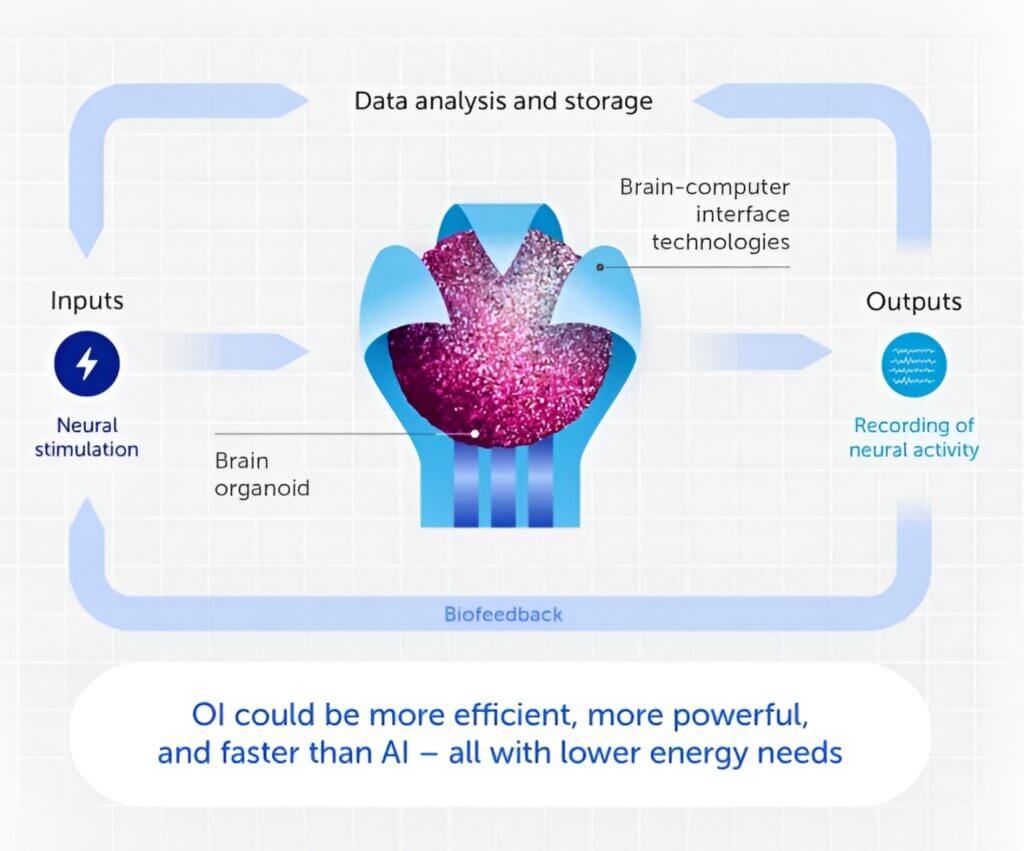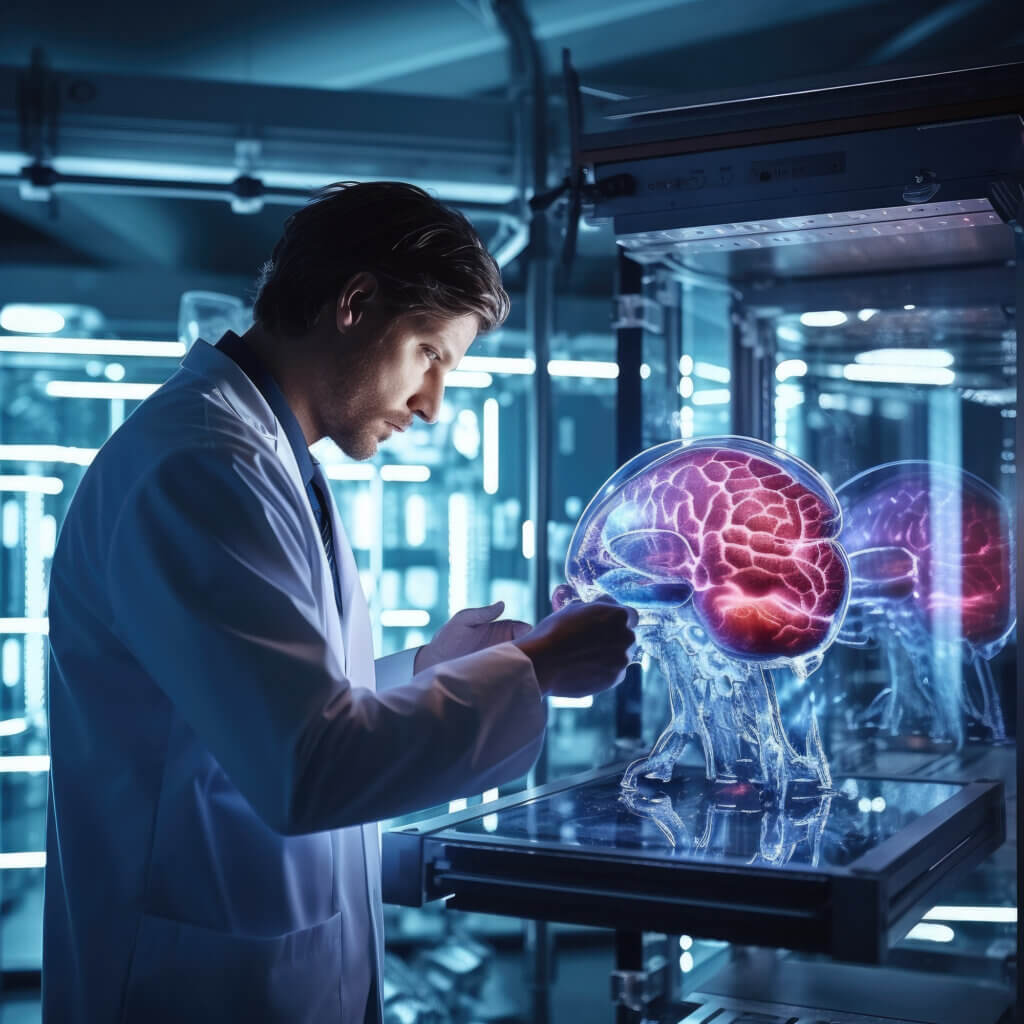Can Organoid Intelligence Change the Future of Technology?
Organoid intelligence is an emerging interdisciplinary field that combines neuroscience, biology, and artificial intelligence (AI). It refers to the use of organoids—miniature, simplified versions of organs grown in vitro—to simulate cognitive processes similar to those of the human brain. This innovative approach holds immense promise for revolutionizing our understanding of brain function, disease modeling, and the development of advanced AI systems.
What are Organoids?

Organoids are 3D structures derived from stem cells that replicate some functions and structures of real organs. Unlike traditional 2D cell cultures, organoids provide a more accurate model of organ systems, allowing researchers to study biological processes in a controlled environment. Among the various types of organoids, brain organoids have garnered significant attention due to their potential to mimic human brain development and function. Creating organoids involves extracting stem cells from a donor or using induced pluripotent stem cells (iPSCs). Researchers then place these stem cells in a specialized culture environment with specific growth factors that encourage the cells to self-organize into organ-like structures.
The Intersection of Organoids and Artificial Intelligence
Defining Organoid Intelligence
Organoid intelligence refers to the integration of biological organoids with artificial intelligence systems. Unlike traditional AI, which relies solely on silicon-based computation, organoid intelligence leverages the natural processing capabilities of living cells. This hybrid approach could lead to breakthroughs in developing AI that can learn and adapt more like the human brain, offering a new paradigm for cognitive computing.
Applications of Organoid Intelligence
The potential applications of organoid intelligence are vast. In the realm of medicine, organoid systems can serve as powerful tools for disease modeling and drug testing. Researchers can create patient-specific organoids to study diseases like Alzheimer’s or schizophrenia, allowing for personalized treatment approaches. Furthermore, the integration of organoid intelligence into neuroprosthetics could enhance the development of brain-computer interfaces, enabling better communication and interaction for individuals with neurological disorders.
The Science Behind Organoid Intelligence
Neural Networks in Organoids
Organoids, particularly brain organoids, develop complex neural networks that resemble those found in the human brain. These networks consist of interconnected neurons that can communicate with one another through synapses. By studying the activity patterns of these neural circuits, researchers can gain insights into how the brain processes information.
Data Processing in Organoids
Organoids offer a unique advantage in data processing. Unlike traditional computers, which rely on binary logic, organoids operate through biochemical signals and neural activity. This allows them to process information in parallel and adaptively, much like the human brain. As a result, organoid intelligence has the potential to solve complex problems more efficiently than conventional computing.

Current Research and Developments
Recent Advancements in Organoid Research
Recent years have seen significant advancements in organoid research, particularly in the field of organoid intelligence. Prominent research institutions are exploring how these biological systems can be harnessed for various applications. For example, studies have demonstrated that brain organoids can exhibit electrical activity and develop neural connections, paving the way for further exploration of their cognitive capabilities.
Despite the exciting potential of organoid intelligence, there are challenges to overcome. Ethical considerations surrounding organoid research, particularly regarding the potential for consciousness in advanced organoid systems, raise important questions. Additionally, technical limitations exist in scaling up organoid systems for broader applications, necessitating further research and development to address these concerns.
Future Prospects of Organoid Intelligence

Potential Impact on Medicine
By utilizing patient-specific organoids, researchers can develop tailored treatments for diseases, improving therapeutic outcomes. Moreover, the ability to model complex neurological diseases ultimately leads to more effective interventions for conditions like Alzheimer’s and Parkinson’s disease.
Broader Implications for AI and Society
As researchers continue to explore the capabilities of organoids, questions arise about the nature of intelligence and the ethical implications of creating life-like systems. The integration of organoid intelligence into everyday technology could lead to new forms of AI that are more adaptive and intuitive, significantly impacting various industries and societal norms.
Final Thoughts: The Promise of Organoid Intelligence
In summary, organoid intelligence represents a fascinating frontier at the intersection of biology and technology. With its potential applications in medicine, neuroscience, and AI, this innovative approach offers a glimpse into a future where biological systems and artificial intelligence coexist harmoniously. As research progresses, the implications of organoid intelligence will continue to unfold, shaping the future of science and technology.
Do you have an interesting project to talk about?
Contact us right away.
